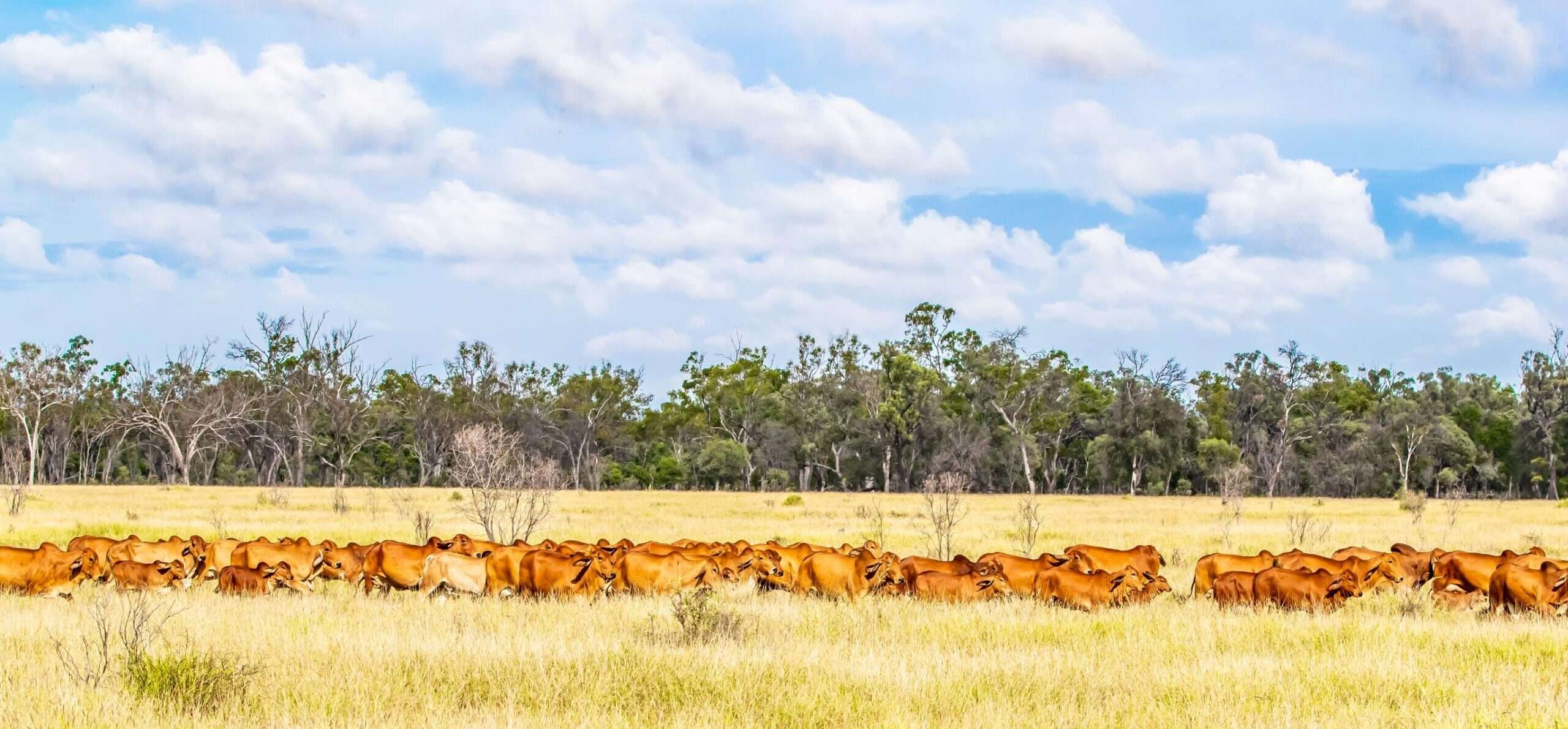FROM DEPARTMENT OF PRIMARY INDUSTRIES AND FISHERIES QLD GOVERNMENT
BRAHMAN NEWS JUNE 2009 Issue #163

At the DPI&F Beef Breeding Services semen storage and distribution complex at
Rockhampton are from left, Dr Brian Burns, DPI&F principal research scientist,
Rockhampton; Professor Gabriel Bo, cattle reproductive specialist,
Argentina; William Tucker, Garuda Brahmans, Bouldercombe;
and John Croaker, managing director, Australian Brahman Breeders Association, Rockhampton
South American cattle producers have embraced Fixed Time Artificial Insemination (FTAI) technology enabling them to adopt cost-effective large scale artificial breeding programs achieving 50-55 per cent pregnancy rates.
These excellent pregnancy rates are the result of one insemination in lactating Bos indicus breeders.
Department of Primary Industries and Fisheries Beef Breeding Services coordinated a March 18 presentation at Rockhampton by internationally recognised Argentinean cattle reproductive physiology specialist Professor Gabriel Bo, president of the Institute of Animal Reproduction, Cordoba.
Dr Bo addressed 30 Central Queensland stud cattle producers and industry representatives involved in artificial breeding and embryo transfer technology.
“Adoption of FTAI technology in South America’s major beef producing countries of Argentina, Brazil, Paraguay, Uruguay and Colombia has fast-tracked the genetic influence of superior animals identified through gene markers and performance testing,” Dr Bo said.
“In 2001, there were 100,000 females involved in Argentinean FTAI programs and by 2007-08 the industry acceptance of FTAI technology resulted in a 16-fold increase to 1.6 million head.
“There was a similar response during the past seven years in Brazil where FTAI usage in predominantly Nelore (Bos indicus) females also reached a high of 1.5M head in 2007.”
Dr Bo said the major FTAI advantages were that it eliminated the need for accurate oestrus (heat) detection and greatly reduced the high cost of time and labour. Cattle were handled just three times in the 10-day program through to insemination.
Field trials funded by the commercial partner Bioniche Animal Health Aust/Asia were underway in Queensland. The objective was to fine tune the FTAI management protocols to optimise oestrous synchronisation for use in extensive Bos indicus and Bos indicus infused breeding herds throughout northern Australia.
Dr Bo was providing expert input into the FTAI trials to accelerate genetic improvement in Bos indicus and Bos indicus infused breeding herds being overseen by DPI&F principal research scientist Dr Brian Burns who was working in collaboration with a team of University of Queensland researchers.
South American experience showed that FTAI was equally effective in lactating cows 55-70 days postpartum and for heifers.
“Each female is impregnated with a Cue-Mate device fitted into the vagina which releases progesterone during an eight day period to bring all the animals into synchronised heat,” Dr Bo said.
“These treated females are then brought back into the crush for a hormone injection to induce ovulation and are returned the following day to be inseminated within the ensuing 18-24 hour period.”
Dr Bo said FTAI had been used commercially in South America’s 300 million head of cattle for some years and its use had lifted pregnancy rates early in the four-month breeding season from 30pc to 50pc.
“Research has shown that for every 21-day cycle that the female misses getting into calf, it represents a 15kg liveweight loss in weaner weight turnoff,” Dr Bo said.
“From a major trial involving two herds of lactating cows, one herd was naturally mated and another herd was artificially inseminated using the FTAI protocol.
“The AI program achieved close to a 50pc pregnancy rate before the non-pregnant females were returned to the paddock to be naturally mated.
“As is always the case, the early season calves performed well and this was reflected in the trial outcome where the weaners from the FTAI herd recorded an average liveweight gain advantage of 34kg.”
Dr Bo said cattle producers must take into account all factors influencing pregnancy rates and this included body score condition (nutrition); stock handling facilities and the personnel involved; the number of animals in the AI project; females actually cycling; and use of alternative treatments.
He said the South American cattle industry accounted for 13-15pc of embryo transfer (ET) technology practiced throughout the world and FTAI was now playing a major role in the ET programs.
In Argentina, 70pc of the ET work was with beef cattle and 30pc with dairy animals. Most embryos involved Angus, Brangus and Braford breeds and were frozen and export ready.
Dr Bo said Nelore cattle dominated Brazil’s 200M head beef herd and as these embryos did not freeze well, the bulk of the Nelore ET work was done fresh on-farm.
Based on early results from FTAI research, Northern Australia’s beef industry was set to follow South America and meet a producer-backed demand to take advantage of performance tested animals to improve herd productivity and profitability.
Dr Burns recently completed a Bioniche-funded trial involving 43 lactating Droughtmaster females aged three to 12 years at Robert and Donna Rea’s Lisgar Pastoral Company’s Home Hill property.
“All the cows were inseminated within a 24-hour period and the mid-March pregnancy tests returned a 56pc positive in-calf result,” Dr Burns said.
University of Queensland led research involving 66 purebred Brahman heifers at the DPI&F Brigalow Research Station (Theodore) tested various oestrus synchronisation treatments.
Dr Burns said the research objective was to gain a better understanding of why Bos indicus and Bos indicus infused genotype herds experience low and highly variable AI results. The findings would contribute to the design of an effective FTAI synchronisation program to accelerate genetic improvement strategies in these genotypes.

